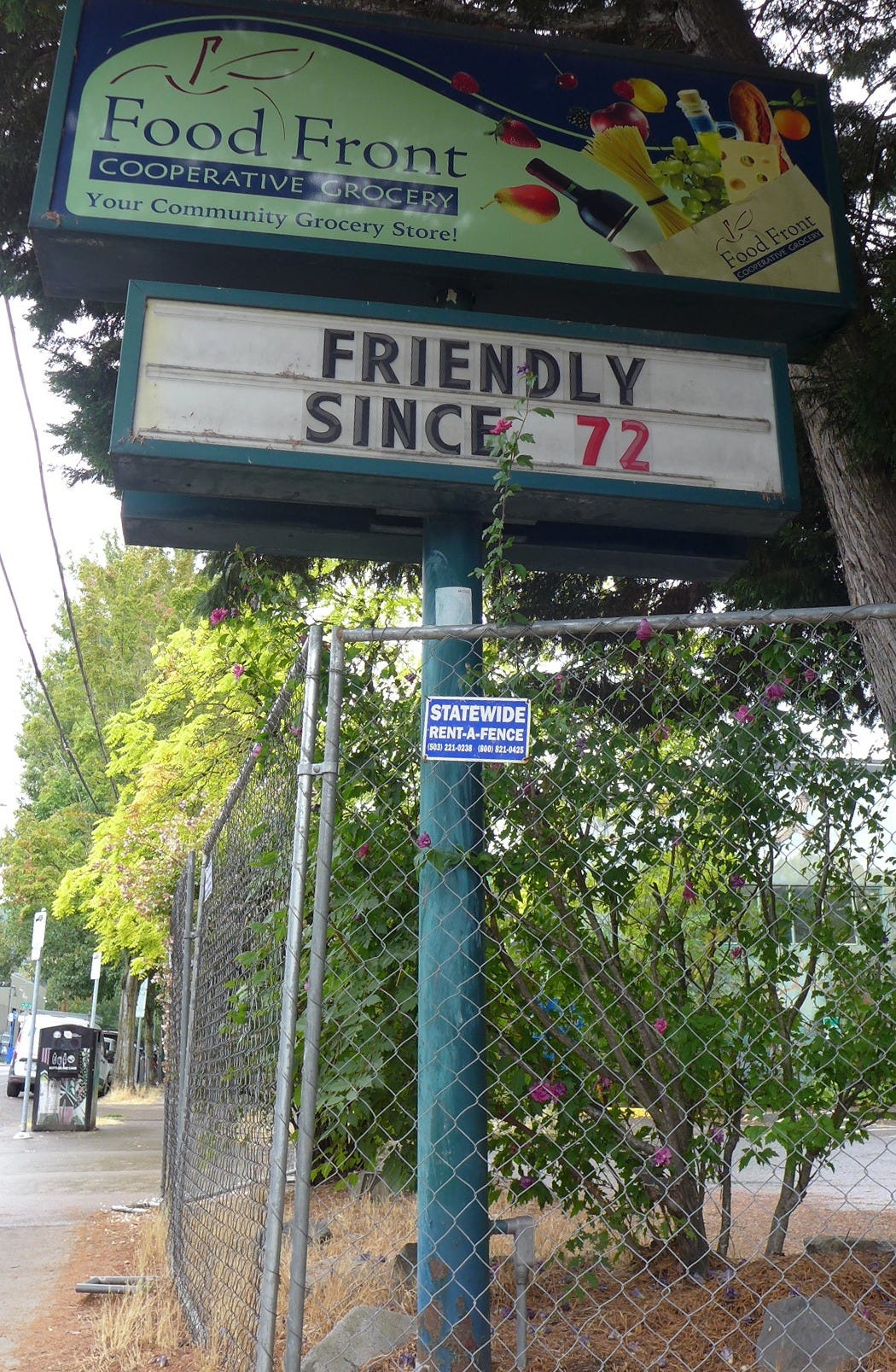Food Front leader now sees mistakes
Dissenting voices within co-op weren't heard
The secretary of Food Front Cooperative Grocery distributed a critique of the co-op’s collapse as a pending sale of its former store and real estate is postponed at the request of the buyer, K-5 Holdings LLC.
Kate Fulton, who joined the dwindling board last year, a year after the store at 2375 NW Thurman St. closed, blamed internal conflict, worker-management hostility and the naiveté of owners and past board members.
Fulton did not, however, point the finger at herself or her two remaining colleagues on the board.
“Within days of the first member meeting after I joined, I was confronted with suspicious and upsetting emails from members and neighbors,” she wrote. “The formula of maximum suspicion plus minimum communication equals crisis was reliably at play.
“I understand many things now that I did not then.”
That understanding drew her to broad assessments, such as:
“The worst outcomes possible happen when people are afraid to speak up, can’t come forward and can’t make suggestions—this is how flawed decision-making occurs and worsens.
“Of the many outside contractors that served as interim HR directors, one told me that it was one of the most dysfunctional workplaces they had ever served in—and they specialized and thrived in difficult environments requiring a steadfast mediator.”
Through it all, members kept the co-op afloat.
“I had no idea how many private lenders came together to provide over $1 million in
support to keep the co-op going,” she wrote. “Dozens of members withdrew from their life savings, took out loans against their retirement accounts or even their homes, in order to provide immediate and substantial relief to this struggling community project that was held so dear to their heart.”
As for the pending sale, Fulton is optimistic that it will close soon and is hopeful that a grocery store will lease the space. She has heard suspicions that K-5 is dragging out the sale, after exhausting two 120-day due diligence periods, in order to force the co-op into discounting the agreed upon $2.55 million sales price, but she has seen no evidence of that.
Her 20-page history was compiled by poring through co-op records and correspondence, and by reading old editions of the NW Examiner.
“It was interesting to see how some of your early articles held accurate predictions,” she wrote.
A cover story in the November 2014 Examiner, “Co-op collapse,” was the first published report on the breadth of the economic and internal problems facing Food Front.




It is called cluster B culture. People who have cluster B personality disorders, such as narcissistic personality disorder, use negative emotions to dominate, manipulate and control people. Narcissists often also suffer from impulsive disorders such as ADHD. They often make impulsive decisions that hurt the team, insist that their way is the only way, and use narcissistic rage to punish people who question them. Calm rational people who question what is going on are attacked and forced to leave the organization.
The only way to avoid this is to simply state that it is wrong to use negative emotions to control people. State that it is wrong to use anger to punish people who disagree with you. Also state that it is wrong to play the victim someone criticizes you.
I have also never heard of such a small business having a HR director. Maybe if everyone was working to stock shelves and wait on customers they would not have gone out of business.